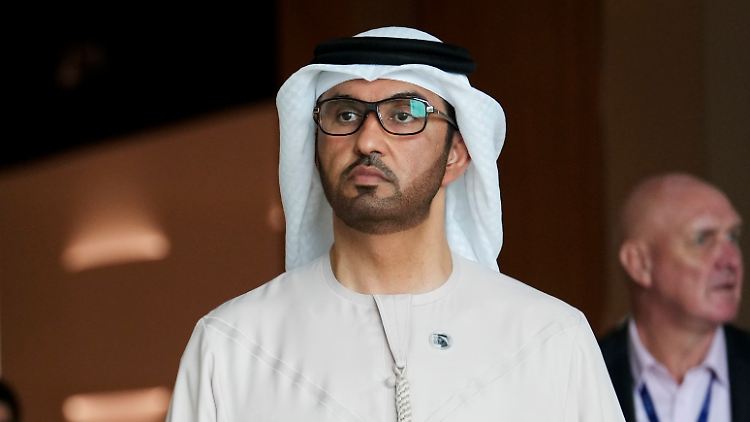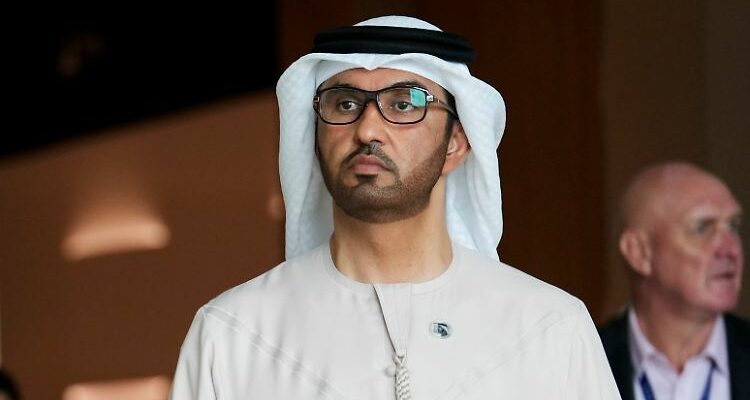Extreme weather events are increasing
This will be discussed at the climate conference
November 29, 2023, 2:49 p.m
Listen to article
This audio version was artificially generated. More info | Send feedback
More than 70,000 participants are expected at the UN climate conference in Dubai. The organizers are convinced that the mega event will be successful. But there is a risk of considerable controversy.
Opposites will collide at the World Climate Conference, which begins this Thursday in Dubai. On the one hand, it’s not just the new global temperature records this year that show that combating the climate crisis is becoming increasingly urgent. On the other hand, the international community is currently distracted from this task by conflicts such as the Gaza War and the Ukraine War.
From the perspective of climate activists, scientists and some countries, a global phase-out from fossil fuels should now finally be initiated. But the fossil fuel lobby is probably more represented in Dubai than ever before. Meanwhile, the United Arab Emirates wants to host the most “inclusive” UN climate conference ever. There is no independent civil society in the Gulf state itself.
More than 70,000 participants were accredited for the 28th UN Climate Change Conference, or COP28 for short. At COP27 there were still around 40,000. Almost 140 heads of state and government, including Chancellor Olaf Scholz, will present their climate policy positions in person at the start of the two-week conference on Friday and Saturday.
CO2 storage is becoming a point of debate
Martin Kaiser, board member of Greenpeace Germany, is skeptical as to whether Scholz and his ministers in Dubai will provide important impetus. After all, the federal government is “now completely distracted” by the budget crisis at home.
The conference in Dubai is chaired by Sultan Ahmed al-Jaber, who is also his country’s technology minister and climate envoy and head of the state oil company Adnoc. This met with a lot of criticism in advance. At the same time, there is a vague hope that Al-Jaber could bring other oil and gas exporters on board with an agreement to phase out or at least significantly reduce the use of fossil fuels.
Al-Jaber has already made it clear that he wants to triple the expansion of renewable energies and double energy efficiency globally by 2030. It is hotly debated what role the so-called CCS technologies, which are not yet fully developed, should play in the capture and storage of the greenhouse gas CO2.
Middle East conflict influences climate movement
Greenpeace board member Kaiser emphasizes that since “we are racing so quickly towards the abyss of the climate crisis,” there should be no excuses or fig leaves. The expansion of renewables and the exit from fossil energies must “take place at the same time”, not one after the other.
The Emirates want a showcase success at the COP. The Gulf monarchy is “very interested in a positive media response,” says David Ryfisch, climate expert at Germanwatch. Polarization should therefore be kept “as low as possible” at the climate conference.
In an interview over the weekend, Al-Jaber assured that he was “confident that COP28 will be the multilateral platform” to bring good news to the world.
The COP presidency should do everything in its power to ensure that the globally polarizing war between the terrorist organization Hamas and Israel does not affect international climate negotiations. It is questionable whether she will succeed in this, because the conflict lines in the Gaza war not only run across the states, but also through the international climate protection movement.
Global warming is heading for at least 2.5 degrees by 2100
However, the climate negotiations require full concentration. On the one hand, the so-called Global Stocktake is to be completed in Dubai – a global inventory of where the international community currently stands in implementing the Paris Climate Agreement.

COP28 President Sultan Ahmed al-Jaber is head of the state oil company Adnoc.
(Photo: picture alliance/dpa/AP)
Last week, the emissions gap report from the UN Environment Program showed how much it is lagging behind. Instead of well below two degrees, but preferably 1.5 degrees, as set out in the Paris Agreement, the earth is currently heading for warming of 2.5 degrees by the year 2100 – even if all international climate protection commitments are met. Global warming of around three degrees seems more realistic.
The warming that has occurred so far is already having devastating consequences. Extreme weather events such as heat waves and heavy rain are becoming more intense and frequent around the world, and new temperature records were reported in 2023.
Ongoing dispute over money at the climate conference
After years of wrangling, it was agreed at COP27 to set up a so-called loss and damage fund to deal with the climate damage that has already occurred. The COP28 participants now have to design it and fill it with money.
A difficult undertaking in view of the ongoing dispute as to whether only the traditional industrialized countries such as Germany are still responsible or whether wealthy, large greenhouse gas emitters such as China or Saudi Arabia are also responsible.
From the perspective of Germanwatch expert Ryfisch, the global community should overcome all of this resistance in Dubai in its own interest so that the earth remains a place worth living in: “We need a strong signal that neither lobbying nor military conflicts can slow down climate protection.”
